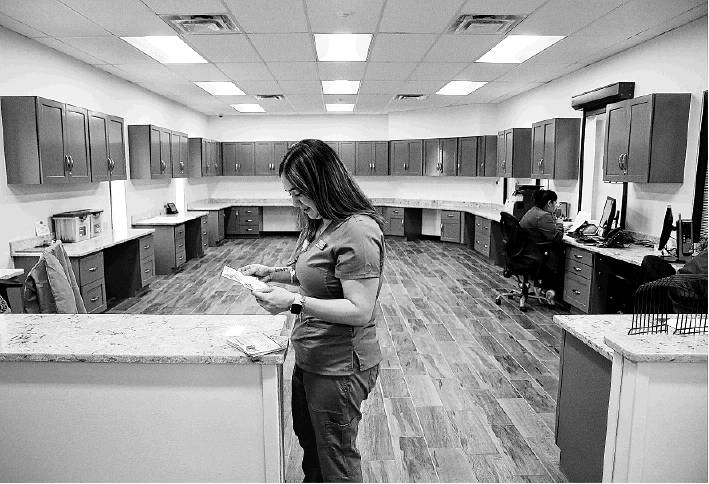Local economy hums with increase in jobs
Even as national expansion appears to be slowing down, Houston racks up numbers
By Erin Douglas STAFF WRITER
Houston’s economy keeps adding jobs and lowering its unemployment rate even as the rest of the nation has begun to show signs of a slowdown in the economic expansion.
The Houston metro area in May saw among the nation’s largest decreases in the unemployment rate among large metropolitan areas, according to the Labor Department. Houston’s economy also added 79,800 jobs in May from May of 2018, one of the largest over-the-year employment increases in the nation.
The local unemployment rate hit 3.2 percent in May, down 0.9 percentage point from amonth prior, the largest decline in the nation, along with the Cleveland, Ohio metro area, which experienced the same decline, the Labor Department said.
Job gains in the Houston metro area were beat only by those in the New York area, which added 114,000 jobs from last May, and Dallas-Fort Worth, which added 107,000 jobs. Most U.S. metro areas, however, posted few job gains in May.
But while Houston employment is growing at a strong pace, concerns continue to rise about a slowing U.S. economy. In May, the nation added just 75,000 jobs, the lowest employment gains in nearly two years, and the Federal Reserve is considering the first cut in its benchmark rate since 2008.
While Houston and the rest of Texas appear to be escaping a slowdown for now, experts say it’s only a matter of time that national trends catch up with the state. In recent years, the strong national economy has supported activity in Houston and Texas, but if it weakens, it would eventually hurt economic activity here.
‘Out of sync’
“Texas’ business cycle has always been a bit out of sync with the rest of the country,” said Jesse Thompson, a senior business economist for the Federal Reserve Bank of Dallas. “Texas is normally the last in and first out (of a recession). We have a different industry mix here.”
A report from the payroll processor ADP, which estimates employment based on its payroll data, estimated that U.S. private-sector employment increased by 102,000 in June, a figure that fell short of already conservative analysts’ expectations of a gain of 135,000 increase in private sector jobs, according to a survey of economists by the Wall Street Journal. Economists said the less than robust number is just another sign of a cooling job market as the tax cuts from 2017 run out of steam and trade tensions drag on with China.
“The job market continues to throttle back,” said Mark Zandi, chief economist of Moody's Analytics in astatement. “Job growth has slowed sharply in recent months as businesses have turned more cautious in their hiring. Small businesses are the most nervous, especially in the construction sector and at bricks-and-mortar retailers.”
Dodging the bullet
Economic activity in the service sector, the largest sector of the economy which includes industries such as real estate, finance and health care, is also slowing, according to a survey by the Institute of Supply Management, an association of purchasing managers. The index of non-manufacturing economic activity fell to 55.1 percent, the lowest level since July 2017, the institute reported Wednesday.
But again, the slowdown hasn’t appeared to have hit Texans yet. The state’s service sector grew at a much faster pace in June than in May, a survey of businesses by the Federal Reserve Bank of Dallas recently found. While executives surveyed still reported feeling uncertain about the economy, broader business conditions were positive. Experts said the local service sector, which includes health care, is likely to remain steady.
“There’s no policy change on the horizon (in health care), and it doesn’t sound like there’s going to be until 2020, so that’ll remain a healthy part of the economy,” said Steven Craig, an economist at the University of Houston. “Houston remains a good place to do business.” erin.douglas@chron.com twitter.com/erinmdouglas23

